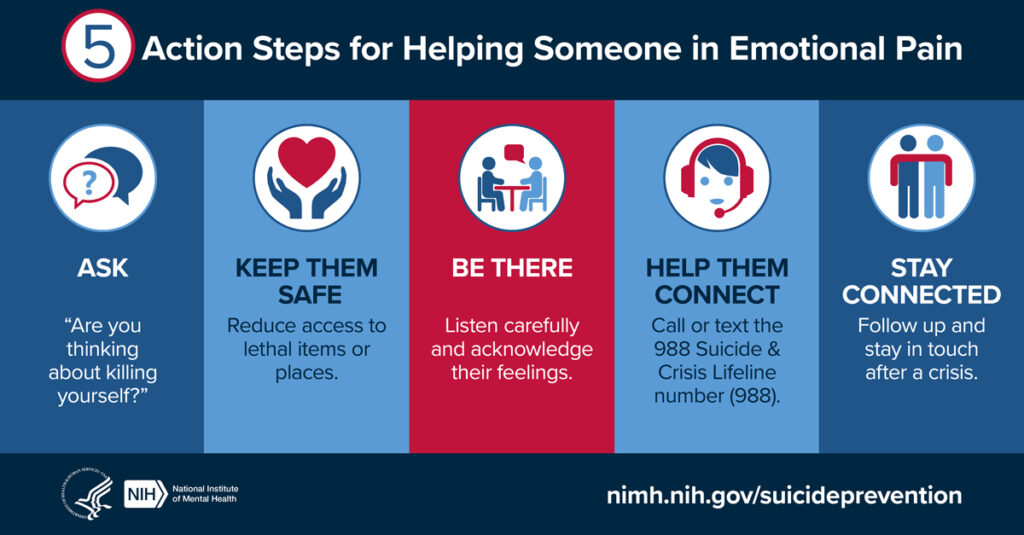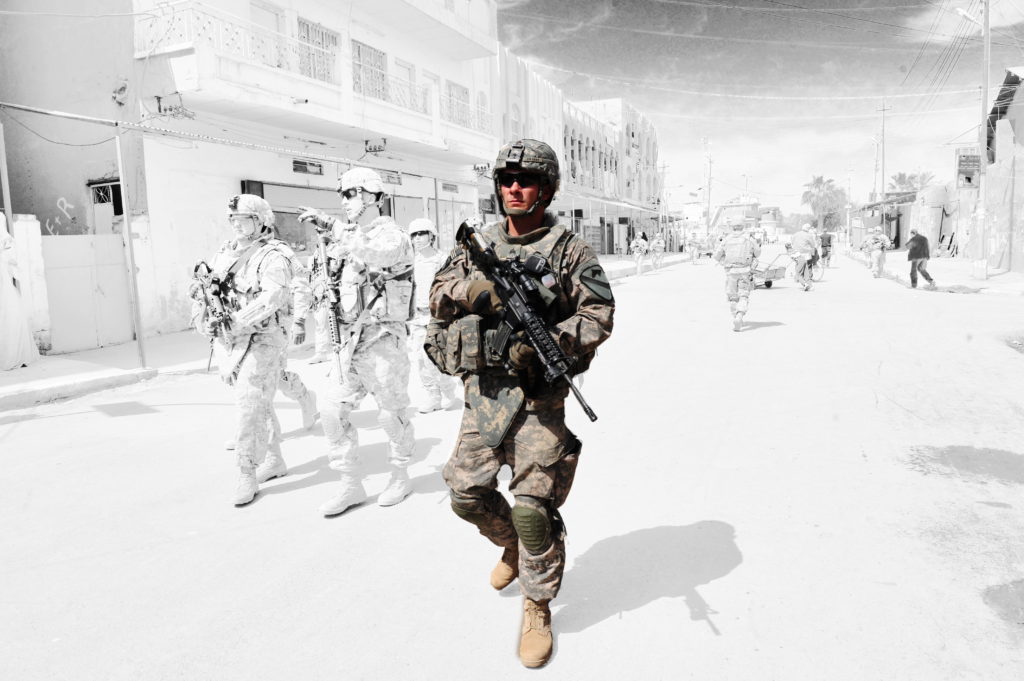“Never take counsel of your fears.” – General George S. Patton
Many of us suffer from chronic pain, medical issues, and live each day with painful trauma shadowing our lives. We have been of service to country and each other, and at some point, we must be in service to ourselves. Whether it’s getting in touch with your teammates and friends, making time for hobbies and doing things you enjoy, getting back into nature, or even speaking with an unbias professional, we need to invest in ourselves. It’s easier said than done, but it’s worth the try.
We’ve lost incredible men and women over the past two decades and despite efforts to curb the concern and veteran-pandemic on behalf of the Department of Defense and Veterans Affairs, we are still finding out our teammates, loved ones, have decided that was it, and finished the final chapter in their book. Exactly thirty days ago, on March 27th, Navy SEAL, Bronze Star and Navy Cross Recipient, Mike Day died by suicide. In 2007 he was shot 27 times and peppered with fragmented shrapnel in Iraq but somehow he survived. Mike continued to serve his country until his retirement in 2010. Following service he wrote a book about his experiences titled “Perfectly Wounded: A Memoir About What Happens After a Miracle” and continued to serve for seven years as a recovery care coordinator within the Special Operations Warrior Care Program – helping other wounded, ill, and injured operators during their time of need.
Why do they do it, after surviving against all odds. And how can we stop it from happening?
The medical system alone is difficult to navigate, compounded with mental health needs is even more taxing on one already carrying a weight on their shoulders. We’ve put together a how-to on how to access different kinds of mental health resources for active duty service members, military veterans, and dependents. If what you have going on is more than you know how to navigate, please consider reaching out to a professional. If you’ve had a bad experience with one, please consider trying someone else or a different form of therapy – there is no ‘one-size-fits-all’. Again, we know this is a big ask, but we all deserve to thrive.
We’ve heard horror stories and bad experiences people have had engaging with the mental
health system, hopefully we can provide some info on what to expect. Any specific questions you have or if you are in need of resources, suggestions, please reach out to Army veteran and licensed social worker Jillian, at Jillian@HunterSeven.org

Security Clearances: This has been a top priority of SMA Michael Grinstons’ since taking the senior leadership position within the Army. Per SMA Grinston, “The existence of a psychological diagnosis or disorder will not automatically disqualify you from getting or retaining a security clearance. Almost no one has lost a clearance for having a behavioral health diagnosis. Of those who have lost clearance, only 0.04% did so for solely psychological reasons.” More about this can be read here.
Hospitalization: Whether you are on active duty, a military veteran (civilian), there are variations dependent on state law and UCMJ, and the policy for hospitalization varies. There are many people actively suicidal that do not become hospitalized and get care on an outpatient basis. If you have concerns about hospitalization, bring those concerns up to the professional you are speaking with, at the beginning of the conversation and they can answer questions you have about it. Hospitalization is meant to be a method of keeping someone safe in an emergent situation and least restrictive means of therapy is always preferred when possible.
Firearms Restriction: Same as hospitalization, it’s situation, law and UCMJ dependent. This is
another issue to bring up in the beginning of care to ask questions. Suicide risk goes hand and
hand with impulsivity, so if a professional is discussing reducing access to lethal means, it
should be a plan on how and what measures to take to keep yourself safe while going through
difficult times.
While you may not be satisfied with this response on firearms (as I, a lawful firearms owner as well as someone who has dealt firsthand with suicidal ideation – as I say this), your firearms will be of no use to you if you are dead. Given how suicide by firearm is an impulsive action of accessibility consider this: If you are feeling down, depressed, or in that state of mind, consider locking your firearms up in a key-locked safe, and putting that key in another location, the farthest point from the safe itself. It has helped (me) snap back to reality in the time it took in between. Please consider trying this.
FOR ANYONE IN AN ACTIVE CRISIS, AVAILABLE 24/7:
– Phone: Dial 988, press 1
– Text: 838255
– Chat: https://www.veteranscrisisline.net/get-help-now/chat/
Veterans in acute (short-term) suicidal crisis will be able to go to any Veterans Affairs Medical Center (VA) or non-VA, civilian health care facility for emergency health care at no cost – including inpatient or crisis residential care for up to 30 days and outpatient care for up to 90 days.
VIRTUAL SUPPORT FOR ACTIVE DUTY MILITARY & VETERANS:
On post clinics, depending on branch and base, you’ll be aligned with a clinic or specific set of providers to start care. Look to your PCM or base hospital directory to find your clinic to get started.
- Select units have embedded, active duty BHO’s (behavioral health officers) and for Special Operations units, there may be POTFF (Preservation of the Force and Family) providers embedded within your group.
- Military One Source – Free and confidential counseling, peer-to-peer support with those who will understand you as they have firsthand life experiences as well. Non-military (civilian) counselors are available for free, short-term counseling services and will help you (and your family) with a plan to continued support and care. Live online chat is available, or you can call 800-342-9647 – they are available 24/7. They also offer MFLC- Marriage and Family Life Counselors, Domestic Abuse support, and Transition support. *They do not keep notes and are meant to be shorter term therapy for everyday life issues, great if you want to dip your toe in and chat with someone informally.
- Chaplains – Some chaplains are licensed clinicians (in the Army they are called Family Life
Chaplains, and some bases even have Family Life Centers). If you have trust with the chaplains, they can be vital for support and advocacy. They are 100% confidential and do not take or maintain notes.
- Stop Soldier Suicide – A non-profit created by three U.S. Army veterans in 2010 amid the worst suicide crisis our military has seen. Stop Soldier Suicide is actively ran by military veterans, many of which we know personally, they truly care about our shared community. They offer private, free teletherapy from licensed clinicians as well as connection to financial support, alternative therapies, and create unique plans based on the service members needs/
- The Headstrong Project – A non-profit organization that provides trauma treatment programs and 30 cost-free mental health sessions. The Headstrong Project has providers in 15 states nationwide and will expand into seven more this year. All services are private and confidential.
- Objective Zero – A downloadable app that you can use to find mental health professionals near yo and also allows you to connect within your own military and veteran community via peer support, wellness activities and mental health resources. All text transmissions are encrypted and confidential.
- Give an Hour – A non-profit organizations where civilian clinicians (non-DOD) donate their time for free mental health and therapy sessions, including those battling depression, addiction, violence, and rare disease & illness support for service members and caregivers. They also offer a wealth of downloadable information which can be found here.
MENTAL HEALTH PROGRAMS IN-PERSON:
- The Independence Fund – Operation Resiliency reunites post-9/11 military units who survived traumatic experiences together during their deployment and have been impacted by Veteran suicide once home. Relying on the trust and brotherhood forged in combat, military units gather to address their next, and most vital, mission on the home front: Preventing Veteran suicide.
- Shepherd Center – Since 2007, SHARE has provided evidence-based rehabilitation for military veterans, service members, and first responders who are ready to accept help and healing for their daily struggle with traumatic brain injuries and mental health concerns. SHARE is the only comprehensive rehabilitation program with: Polytrauma, Mental Health, Case Management, Pain Management and a variety of therapies, each tailored specifically to the veterans’ needs. To learn more reach out to Alex – Alexandria.Carvalho@shepherd.org
- Cohen Veterans Network – Non-profit military-specific mental health clinics separate from the Department of Defense, with clinics spread throughout the country. Their focus is on post-9/11 veterans, active duty, and families, in order to get ahead of transition challenges before they become chronic or acute. They currently have (23) clinics – a full list can be found here. They also offer telehealth services for those who prefer that.
- Military & Veterans in Recovery @ Banyan – Banyan Treatment Centers have a program dedicated to Military Veterans (Military & Veterans in Recovery) and provides nationwide addiction treatment programs and detox for a variety of substances. Veteran patients face unique challenges with addiction, alcoholism, or mental health, and individualized care is key in helping them get sober, happy, and healthy. Following medical detox, patients can enter a variety of Banyan rehab programs at nationwide facilities. Read more about the services provided by our nationwide drug and alcohol detox programs. To get support, reach out to veteran advocate Olin – Olin.Morris@banyancenters.com
- Vet Centers – Even if you are not enrolled within VA, you can still access the Vet Centers. Vet Centers are unique, as they are funded by VA, but none of what is discussed between a mental health counselor or social worker is placed into a military members or veterans patient chart. All services are strictly confidential and most who you will work with are post-9/11 military veterans themselves. To learn more you can call 877-927-8387.
- The Mosaic Foundation – a non-profit organization based in San Diego, California that offers weekends-long retreats for active duty and military veterans. They emphasize largely on the facilitation of healing the mind, body, and spirit, while doing so alongside others who’ve experienced the same. Retreats are held at various locations across the country and are tailored to the capabilities (and any limitations) attendees may have.
- Operation Healing Forces Retreat Program for SOF: Operation Healing Forces, based in Tampa, Florida, offers unique opportunities to special operations service members, veterans and their families to relax, recover and recoup. Each OHF retreat is unique in its activities and settings, but our goal is always the same: Creating Bonds that Cure. Also, each retreat is led by a former member of the special operations community. The retreats are nationwide, and intimate, limiting attendance to 4-5 couples per retreat.
ALTERNATIVE THERAPIES FOR MENTAL HEALTH
- Heroic Hearts Project – Heroic Hearts Project has helped hundreds of veterans overcome their suffering from PTS by providing them not only with access to psychedelic programs (Ayahuasca, Psilocybin, DMT, Ketamine, Ibogaine, etc.), but with professional coaching, peer support, medical providers and other resources to empower them along their healing journeys.
- The Stellate Institute – The stellate ganglion block (SGB) is a procedure in which an injection of a long-acting local anesthetic, using ultrasound guidance, is made in the side of the neck around the main nerve that controls the “fight or flight” response (the sympathetic nervous system). Founded by Navy SEAL-turned-Special Missions Unit Doctor, Dr. Sean Mulvaney, and joined by Dr. Jim Lynch, M.D.. Both men served in tier-one special missions units, providing care to hundreds (most likely, thousands) of special operators.
This is not an all-inclusive list, please reach out to us with any suggested additions: Jillian@HunterSeven.org.
